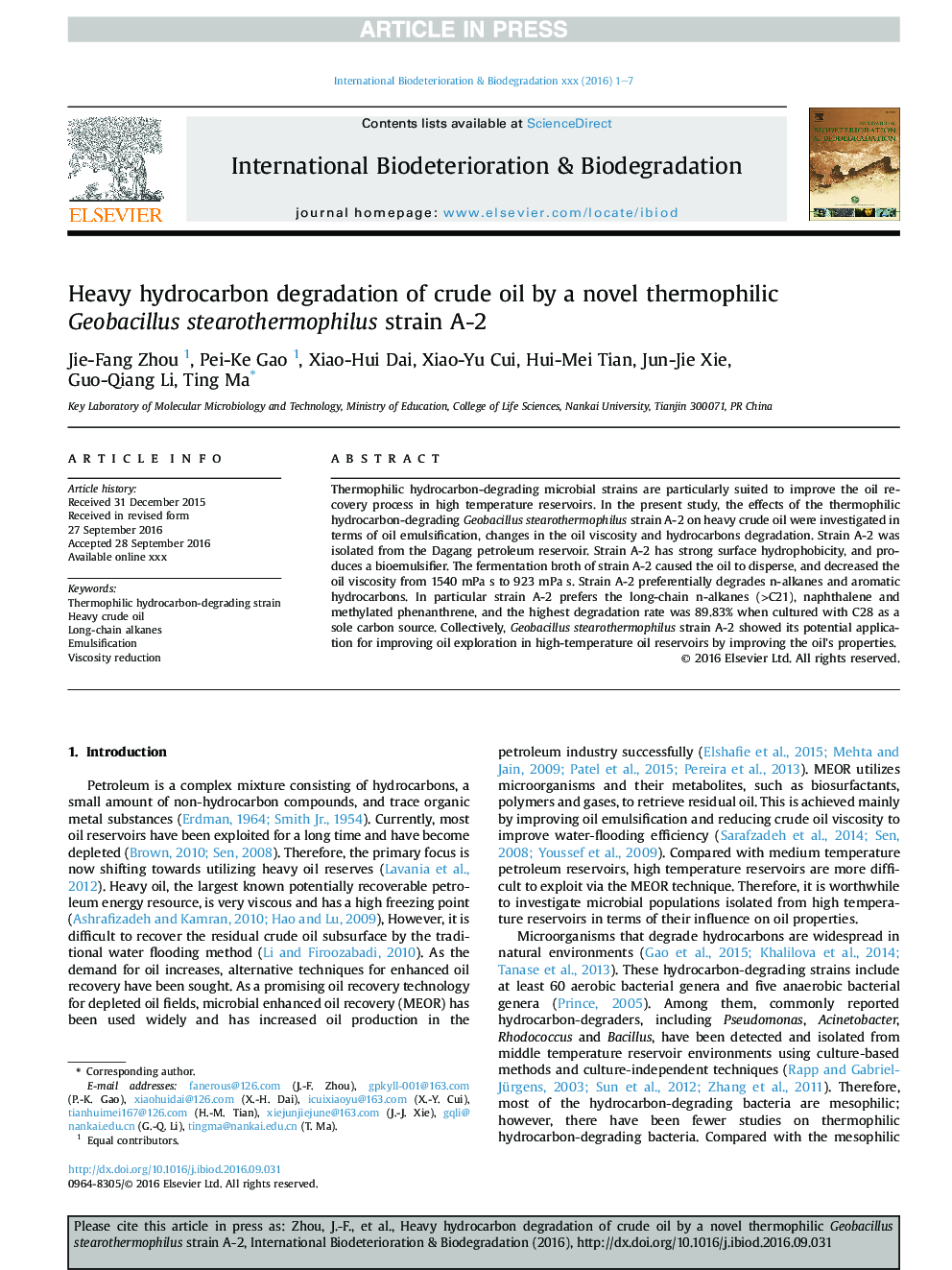| Article ID | Journal | Published Year | Pages | File Type |
|---|---|---|---|---|
| 8843980 | International Biodeterioration & Biodegradation | 2018 | 7 Pages |
Abstract
Thermophilic hydrocarbon-degrading microbial strains are particularly suited to improve the oil recovery process in high temperature reservoirs. In the present study, the effects of the thermophilic hydrocarbon-degrading Geobacillus stearothermophilus strain A-2 on heavy crude oil were investigated in terms of oil emulsification, changes in the oil viscosity and hydrocarbons degradation. Strain A-2 was isolated from the Dagang petroleum reservoir. Strain A-2 has strong surface hydrophobicity, and produces a bioemulsifier. The fermentation broth of strain A-2 caused the oil to disperse, and decreased the oil viscosity from 1540 mPa s to 923 mPa s. Strain A-2 preferentially degrades n-alkanes and aromatic hydrocarbons. In particular strain A-2 prefers the long-chain n-alkanes (>C21), naphthalene and methylated phenanthrene, and the highest degradation rate was 89.83% when cultured with C28 as a sole carbon source. Collectively, Geobacillus stearothermophilus strain A-2 showed its potential application for improving oil exploration in high-temperature oil reservoirs by improving the oil's properties.
Related Topics
Life Sciences
Environmental Science
Environmental Science (General)
Authors
Jie-Fang Zhou, Pei-Ke Gao, Xiao-Hui Dai, Xiao-Yu Cui, Hui-Mei Tian, Jun-Jie Xie, Guo-Qiang Li, Ting Ma,
